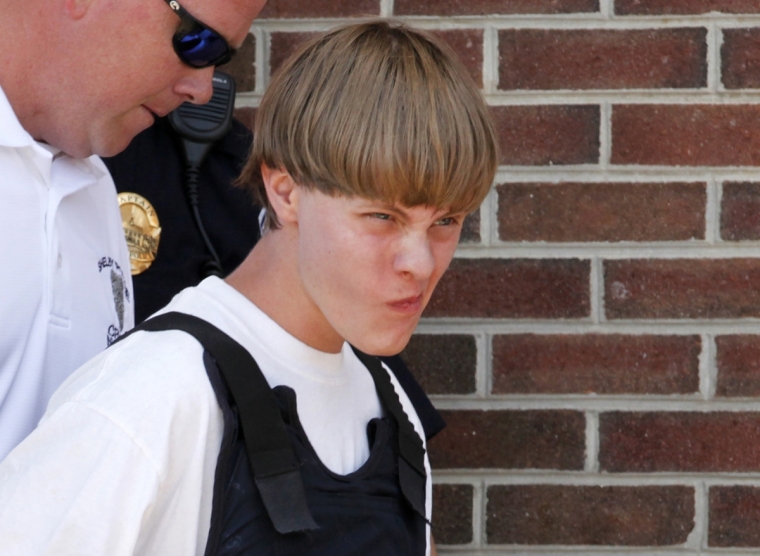On target? Kansas bishops ban concealed weapons from churches

TOPEKA (Christian Examiner) -- Episcopal bishops in Kansas have issued a declaration that all of the denomination's churches in the state must ban the carrying of firearms (concealed or open), unless they are carried by designated law enforcement officers.
Bishop Dean Wolfe of the Episcopal Diocese of Kansas and Bishop Michael Milliken of the Episcopal Diocese of Western Kansas issued the "pastoral directive" June 20. Churches now have until Aug. 1 to comply by posting official signage that makes the churches official "gun-free zones."
Individuals can run away from the shooter; seek a secure place where they can hide and/or deny the shooter access; or incapacitate the shooter in order to survive and protect others from harm.
In the letter sent to the churches, the bishops wrote the move was prompted by "a series of radical changes in firearms laws" in the state which allow citizens to carry firearms, both concealed and openly, into church.
"These changes reflect the efforts of an active gun manufacturers' lobby, and in our judgment, they unnecessarily endanger the citizens of our state and the members of our parishes," the bishops wrote.
But the laws, supporters say, are intended to allow citizens to protect themselves against an active shooter. It is also, they say, acceptable for churches to train vetted parishioners on how to respond with firearms when needed.
In active shooter situations in schools, a shooting lasts on average 12.5 minutes, long enough for a gunman to kill dozens of people who cannot protect themselves.
The average police response time is 18 minutes, according to the National Sheriffs Association. There is no reason, supporters of the law say, to assume response times for churches would be any different.
In June 2015, for example, Dylann Storm Roof killed nine parishioners at the Emanuel African Methodists Episcopal Church in Charleston, S.C. By the time the police arrived, Roof had fled and was later captured in North Carolina. Only one person in the church prayer meeting survived.
According to an FBI study of active shooter situations from 2000-2013, six different incidents occurred in houses of worship in the 13-year period. Those shootings claimed the lives of 21 people. Another 27, including one law enforcement officer, were wounded.
"Most incidents occurred on Sundays (3), with the rest occurring on a Tuesday (1), a Friday (1), and a Saturday (1). In all, 3 shooters were apprehended (2 of whom were restrained by citizens until police arrived) and 3 committed suicide at the scene (2 before police arrived and 1 after)," the FBI report said.
The bishops did not address these or other statistics on active shooter situations, but said they were acting upon their "ecclesiastical authority" to ban the weapons:
"For Episcopalians, the Bible serves as a trustworthy guide for our beliefs and practices. The prophets clearly saw the ultimate purpose and goal of God's creating and saving work: 'they will not hurt or destroy on all my holy mountain' (Isaiah 11: 9). God became human in Jesus Christ, who was proclaimed the Prince of Peace. The Apostle Paul embodied the spirit of Jesus when he urged Christians to never 'repay anyone evil for evil' (Romans 12: 17). Paul understood Christ as the new Adam, the pioneer of God's peaceful future reign. As Christ's body, the Church and all its members belong to the coming Kingdom. Every time we celebrate the Eucharist we demonstrate God's generous, nonviolent intent for all creatures. We even call the space we use for our worship 'a sanctuary,'" the bishops wrote.
The directive then provided a series of steps churches are expected to take by Aug. 1 to comply with the order.
Making the churches gun-free zones, the bishops said, will "serve as a testament to the promised future reign of Christ in which 'no sword is drawn but the sword of righteousness, no strength known but the strength of love.'"
In 2013, the FBI issued a guide for houses of worship on active shooter situations. While the guide admits that no two active shooter situations are alike, the experiences of those under the gun are. People are initially startled, in disbelief, and then fearful.
The guide claims there are only three basic responses to an active shooter in a church: run, hide, or fight.
"Individuals can run away from the shooter; seek a secure place where they can hide and/or deny the shooter access; or incapacitate the shooter in order to survive and protect others from harm," the guide said.